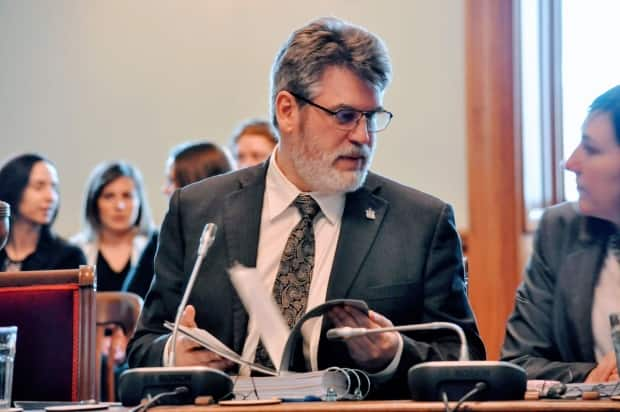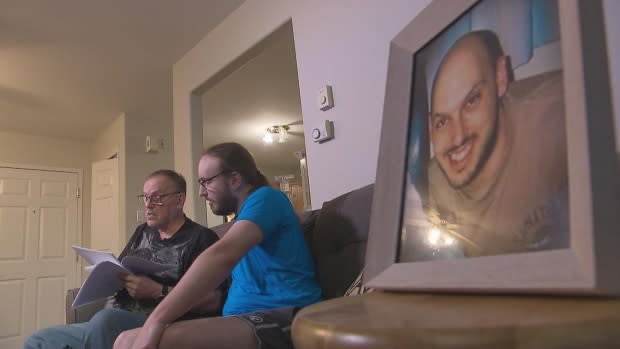Long road ahead for Restigouche Hospital in ending culture of silence, ombud says
Almost a year after the death of Martin Michaud, there's still a culture of silence at the Restigouche Hospital Centre, New Brunswick's ombud says.
Michaud, 38, died by suicide in his room on February 9, 2019. Vitalité Health Network has provided few details on his death and the internal investigation it sparked.
"I do see some signs of progress, but the reality is cultural change is difficult and takes time," said Charles Murray.
"Cases like this may demonstrate that there's a lot furthfer to go than we have gone so far."
Murray, who is also the province's right to information and privacy commissioner, is investigating CBC's recent appeal to Vitalité Health Network.
CBC has been trying to obtain records regarding Michaud's death and Vitalité's internal investigation through the province's access to information system. Vitalité has only turned over an incident report and the text of two recommendations that were made. It said it doesn't have any more notes from its internal investigation.
The health authority initially refused to hand over any records concerning Michaud's death.
Murray's investigation into CBC's appeal is expected to take a couple of weeks.
Although Murray can't comment on the ongoing investigation, he emphasised the importance of transparency.
Murray's 2019 report into the Restigouche facility, which was released two days before Michaud died, detailed a culture of silence and poor record keeping at the institution.
"Without adequate notes, it becomes very difficult to ascertain what took place and to improve things," Murray told Information Morning Moncton.
"Mistakes happen in any system, but the ability to correct those mistakes starts with identifying those mistakes. Bad record keeping is the enemy of improvement."
Patient confidentiality shouldn't be a way to deflect
Vitalité initially cited patient confidentiality as one of the reasons why it would not release any information.
Although patient confidentiality is important, Murray said it should not be used to avoid releasing documents to the public.

"We want to ensure that what's being done is truly protecting the interests of the patient or the patient's family in some cases, and not really a broad brush being used to avoid releasing documents," he said.
"That the agency or government would rather not [release documents] because they're embarrassing or they put it in a bad light."
Family wants transparency
Michaud's family has said they would like to see more transparency from the health network.
"My big frustration is after almost one year, we never had a letter or a phone call from the hospital or from Vitalité for condolences or something like that," said Roland Michaud, Martin's father, in an interview with Radio-Canada.

And there's nothing legally stopping Vitalité from issuing an apology to the Michaud family.
"Sometimes inside large agencies people feel like, 'Well it's not my place to do that. Someone above me should make that decision,'" Murray said.
"But that sort of leadership has to come from the very top."
Coon asks for coroner's inquest
Politicians of all stripes have called on the government to be more transparent. Green Party Leader David Coon said he would like to see a public coroner's inquest into Michaud's death.
But Murray said it's up to the government to decide whether it wants to pursue an inquest.
If an inquest were conducted more information may be brought to light, but another inquest also runs the risk of repeating information the ombud's office has already found.
"That's a decision for government to make in terms of how they want to spend their resources."


